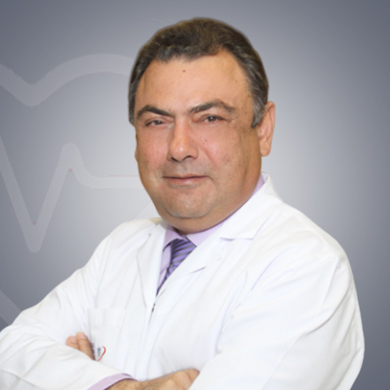
26 Years of experience
Speaks: English
Listed below are some of the conditions that surgical neurologist Farouk Safi treats:
Most women affected with breast cancer undergo some types of surgery as part of treatment. There are various types of breast surgery. This might be performed for different reasons. Surgery may be done to remove cancer through mastectomy. The surgery is also performed to know if cancer has spread to body parts and to restore the breast’s shape.
There are around 200 different types of cancer and all these can cause different symptoms. The symptoms are often linked to some cancer types. The signs could also be general, including weight loss, fatigue, and unexplained pain. Although there may be different symptoms in different types of cancer, some general symptoms of cancer include:
You can see Dr Farouk Safi between 11 am and 6 pm from Monday to Saturday. The doctor is not available on Sunday.
The list of popular procedures that Dr Farouk Safi performs for cancer treatment is given below
The doctor has rich experience in performing complex cases with accuracy. The surgeon has performed a large number of procedures with a high success rate and adheres to medical protocols to ensure patient safety and speedy recovery. The specialist is proficient in using the latest techniques to perform the procedures and ensures that the patient has a speedy recovery. Minimally invasive surgery and open surgery are two ways of doing cancer surgery. In open surgery, a large incision is made to remove the tumor. In minimally invasive surgery, surgeons make a few small cuts to remove the tumor. The common techniques for minimally invasive surgery are laser surgery, cryosurgery, robotic surgery, laparoscopy, cryosurgery.

Share Your Experience about Dr. Farouk Safi

A surgical oncologist is a doctor who removes the tumor and adjacent tissues through surgery. They also perform some types of biopsies to diagnose cancer. Surgical oncologists choose to perform surgeries to find out the locations where cancer has spread. While treating cancer, a surgical oncologist might remove cancerous tumors and surrounding healthy tissues, and nearby lymph nodes. The surgical procedures used will vary depending on the aim of the surgery. Surgical oncologists might do minimally invasive procedures or open surgeries.
The tests required before and during the consultation by a surgical oncologist include:
In most cases, surgical oncologists need to perform a biopsy in order to diagnose cancer. In this procedure, the doctor removes a part of the body tissues to examine under a microscope. The doctor then does other tests to check if the tissue is cancer.
Your primary doctor will refer you to a surgical oncologist when he finds your symptoms similar to that of cancer. The surgical oncologist will tell you to get some tests done to diagnose cancer. If cancer is diagnosed, the doctor will design your treatment plan which will include some surgical procedures. In the below-listed situations, you must seek assistance from a surgical oncologist: